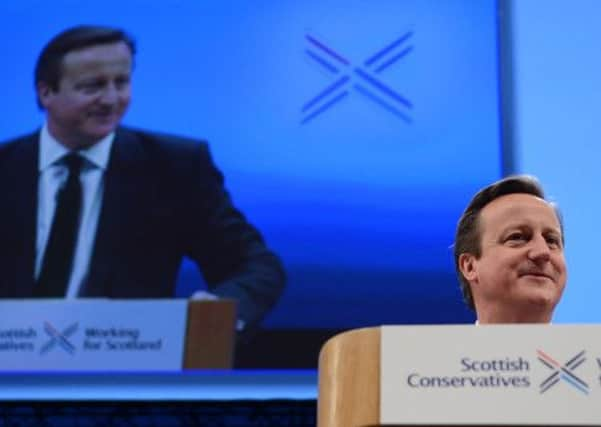Comment: How much do political promises mean?


What a difference a year makes…
What is a public promise worth? Does a solemn vow, taken during an emotionally charged moment, guarantee an outcome?
Of course not. Yet we still invest hope and trust that the promise will be upheld. To do otherwise condemns us to a lifetime of cynicism and distrust. In Scotland we await the outcome of the negotiations to determine whether the promises made in the final days of the referendum have any value. The problem for politicians and other public figures is the long history of overblown claims that they will change the world for the better and their associated failure to deliver these claims have become all too familiar in recent times. In New York last month we saw politicians and celebrities again wax lyrical about what must be done to reduce the threat of climate change on our global society. But promises of action without delivery mean nothing.
Advertisement
Hide AdAdvertisement
Hide AdWe also know from experience that “delivery” on contested topics is challenging. From international political negotiations, such as determining a global response to climate change, to local authority pledges on sustainable energy, making things happen involves challenging partnerships, compromises and reshaped visions.
Perhaps the most important outcome of the referendum was the unprecedented engagement with the question of what sort of country we want in future. Largely missed by the main political parties, this dynamic response from individuals, communities and enterprises bodes well. It takes us beyond the passive “trust the government” or “trust the market” view of recent decades.
Nowhere is this more apparent than in the role of energy in Scotland. Whether considering how to prolong Scotland’s energy resources or reducing fuel poverty, there is increasing engagement between public, private, academic and community enterprise.
This engagement is driving a huge range of activities. In the past year alone, we have seen 15,000 people attend 300 events and activities at the Edinburgh Centre for Carbon Innovation’s (ECCI) newly refurbished and award-winning High School Yards building in Edinburgh. Led by business, government, universities, communities and social enterprises, these activities seek to enable delivery of practical outcomes. They bring people together through “accidental collisions”, seeking to solve issues from energy poverty and ensuring warm homes to delivering more effective transport and land use.
In the same vein, the Edinburgh Centre has been supporting 16 large city and island projects around Scotland to make more efficient use of energy. By joining entrepreneurial thinking by local businesses, public authorities and community groups with learning from overseas and effective project management, we can nurture and accelerate these projects.
And it is not just large-scale projects. As a national hub, the ECCI has actively engaged over 1,000 Scottish enterprises and organisations to help translate good ideas into new low-carbon products and services for local and international markets. We are working with public and private enterprises to enable local businesses to test and trial their products and services on their premises – a key step which often hinders the rolling out of new ideas.
The practical learning gained from developing such projects is itself of great value to countries around the world. Connections to Asia Pacific, Latin America and North America have been forged in the past year. The Edinburgh Centre plans to open its first Asian outpost in Hong Kong in 2015 and to leverage the University of Edinburgh and Scotland’s international presence in Latin America and North America.
So a year after the ECCI moved into Edinburgh’s famous old High School, the sheer vibrancy of the engagement with these big social challenges by different enterprises and by people across Scotland suggests a bright future. It also points the direction for politicians tempted to over-claim and under-deliver, whether on referendum pledges or sustainable energy plans. Making public promises is easy. Delivering such promises is not. But when politicians are working with collective social and business enterprise, backed by a supportive public sector and insights from a strong university base, delivery starts to look a lot less difficult.
• Andy Kerr is executive director of Edinburgh Centre for Carbon Innovation edinburghcentre.org